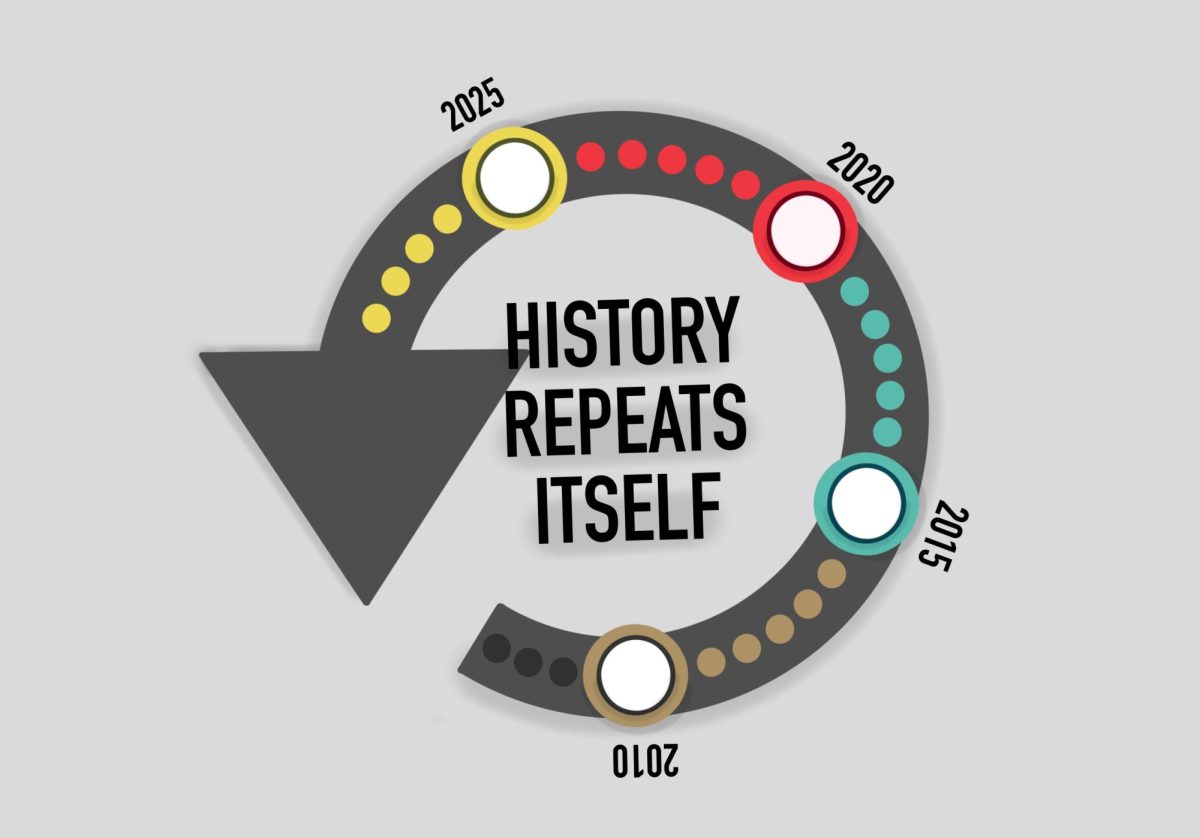Tick.
Tock.
After reading my headline and first two lines, my column’s central theme is probably a bit unclear. Am I talking about our pertinent climate emergency? Am I talking about our urgent public health crisis, the COVID-19 pandemic? Am I talking about the self-inflicted-but-serious debt ceiling crisis? Am I talking about the GOP states moving to further gerrymander their district lines? Am I talking about the growing gap between the ultra-wealthy and everybody else, which puts our democracy further at risk? Am I talking about the hollowing of the middle class? Am I talking about rising levels of drug overdoses, suicides, depression and more?
It would be plenty reasonable to think I’m talking about any of these crises. The clock is ticking on all of these issues, plus more that I haven’t even mentioned. Isn’t that a problem?
In short, I’m talking about all of these crises. They’re all urgent. If something isn’t done about them in the next few weeks and months, especially in the Democrats’ reconciliation package, they very possibly won’t get done this decade. Don’t believe me? Look back at history, especially since the election of Barack Obama in 2008, and the downward spiral that was his time in office.
In late 2007-2008, the Great Recession hit. People began losing their jobs. George W. Bush’s approval rating tanked. Though John McCain, not Bush, was on the ballot in 2008, it seemed that the GOP would have a tough time winning. Then came Obama. A young, good looking, Black, seemingly progressive junior senator from Illinois, Obama was elected to the White House, and along with him came a large Democratic majority in the House and 59 (temporarily 60) Democrats in the Senate.
Though the Democrats passed a watered-down healthcare reform bill (the Affordable Care Act, also known as Obamacare), the House majority was lost in the 2010 midterms, and little more was accomplished in Obama’s eight years in office. The same could be said for Trump’s presidency; the Tax Cut and Jobs Act was passed in 2017, Republicans lost control of the House in the 2018 midterms, and outside of tweeting endlessly, little was done in the latter two years of his presidency. This time around could easily be the same; many predict that Republicans will gain control of either the Senate or House during the 2022 midterm elections.
I don’t think that people realize how short the Democrats are on time. First, the debt ceiling needs to be raised (or, even better, abolished) soon, as the Congressional Budget Office (CBO) estimates the U.S. would begin defaulting sometime in October or November of this year. Second, as we move into the new year, politicians up for re-election (nearly all in the House and about one-third of the Senate) will be more focused on campaigning than on governing, meaning little will get done until January 2023.
The obvious concern with waiting too long and getting nothing done now is that Democrats likely won’t have control of both houses of Congress in January 2023. That’s why the next month in Washington is so important.
As Sen. Bernie Sanders (I-VT) has said time and again, this legislation could be the most consequential legislation for working people since FDR’s New Deal. I agree. While the $550B bipartisan infrastructure bill would be great, the $3.5T “human infrastructure” bill would make Joe Biden the best president of my lifetime if passed as is. This bill has provisions for paid family/medical leave, climate change, child care, universal preschool, free community college, lowering the Medicare eligibility age to 60, extending the child tax credit and more. If you ask me what should be left out, the answer is nothing.
Plenty of polling agrees with me, too. So whenever I hear journalists refer to Sen. Joe Manchin (D-WV), Sen. Kyrsten Sinema (D-AZ), Rep. Josh Gottheimer (D-NJ), or other Democrats in opposition to the $3.5T bill as “moderates” or “centrists,” I cringe. A Democrat being opposed to the large majority of the country and their president’s opinion is not a “centrist” position, just as opposing climate change legislation, an expansion to the child tax credit, and three and four-year-olds going to public school doesn’t make you a “moderate.” The positions held by these corrupt politicians are right-leaning at best, radical and destructive to our society’s future at worst.
I applaud the progressives in Congress, including our hometown representative Ilhan Omar, for maintaining that they will vote no on the $550B bill until the $3.5T bill has been passed. I hope they keep their feet dug in. The second progressives balk and vote yes unconditionally on the $550B bill is the second that any hope at passing the $3.5T bill ends.
So, congressional Democrats: get moving. Progressives: don’t back down. Push the conservative Democrats to get this done. Because families are waiting. Because the 2022 midterms and the 2024 presidential election are on the line. Because we need to meet this moment.
Because that clock is still ticking.















CapnRusty
Sep 29, 2021 at 1:15 pm
How many credit hours was your Econ 101 class?